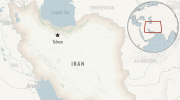To Make Politics Fair, Economics Must Be Fair, Too

Mention the influence of money in U.S. politics and Americans growl. Mention the influence of interest groups, which most people call "special interests," and Americans growl even more. With banks and insurers recently mounting effective lobbying campaigns to produce favorable actions from Congress, a question on many citizens' lips these days is, "will the nation ever be able to eliminate the influence of money in U.S. politics?"
The short answer is, "no." You'll read arguments to the contrary and long discourses regarding how public funded-only election campaigns will do it. But the reality is, unless the nation suddenly becomes a participatory democracy with no Congress or legislatures, there's almost no chance that the nation will eliminate the role money plays in U.S. politics. You would have a better chance of stopping the fog from forming on San Francisco Bay for an entire year than you would at rooting out money from U.S. politics.
Further, as a result of the U.S. Supreme Court's recent 5-to-4 decision that allows corporations to spend unlimited amounts of money to support or oppose candidates for elected office, the money flowing into U.S. politics, already high, is likely to increase substantially in the years ahead. The Supreme Court's decision in effect opens the spigots regarding money flows.
So now you're thinking, "oh wonderful, not only are the special interests winning, they now have even more freedom to exert their influence."
A Big Resource Advantage
Even so, you shouldn't panic. What looks like a bleak future for the typical American, from a Congressional representation standpoint, need not be, if one remains focused on the problem's cause, and supports the appropriate changes.
And the problem's cause is not money, but the inequality of money, particularly the inequality as it relates to the political system. Money has been around politics since antiquity. And as they say inside the beltway, money is the mother's milk of politics. The difference today is that certain U.S. interest groups have amassed so much of it. They of course have a resource advantage over the typical family of four who lives in Orange County, Calif. or in suburban Kansas City, Mo. or in a small town in Vermont.
U.S. Sen. Joe Lieberman's (I-Connecticut), stance against health care reform -- and in particular against the public option that would have benefited millions of uninsured, economically disadvantaged families and individuals -- is a classic example of the above. Lieberman's home state contains the city of Hartford, which, as most investors know, is the insurance capital of the world. The insurance industry doesn't want a public option, and Lieberman, who's received campaign contributions from the insurance lobby, doesn't either -- surprise, surprise. Lieberman said he will oppose any public option, period.
Moreover, it should not come as a shock to any one that the inequality of politics in Washington, as it relates to special interests, mirrors the inequality of income and wealth in the U.S. economy. That's because at the end of the day, the U.S. political system is just an extension of the U.S. economy.
The Political Free Market
Think of the goings-on in Washington as the free market applied to the political realm. If income and wealth are more evenly distributed, one should expect the resources deployed in Washington to be more evenly distributed. Conversely, if income and wealth are poorly distributed, with one or two segments having disproportionate resources, one should expect the resources deployed to stem largely from these groups, and the policy outcomes to reflect their interests.
And that, in a nutshell, is basically the U.S. political system as it exists today. A lot of money? A lot of influence in U.S. politics. Little money? Virtually no influence in U.S. politics. The tens of thousands of non-union restaurant workers toiling in restaurants is one example of the above: Their pay in many cases is low and inadequate and their influence hardly strong enough, they have little chance at seeing their interests prevail over the National Restaurant Association.
Or as University of Connecticut Professor Emeritus of Political Science David E. RePass aptly put it, "In the United States, the economically disadvantaged are the politically disadvantaged."
Equalizing The Economics
And now you know the solution to the above: Those programs -- and there are a myriad of both public and private programs that can work toward this goal -- that increase the income and wealth of those who have little. They can result in a more even distribution of resources, ultimately evening out the resources and the money deployed in Washington.
Near term, these programs can include increasing the earned income tax credit, support (voluntary or via legislation) for the living wage, voluntary or mandated greater representation of the poor and working poor on corporate boards of directors and on other, key, decision-making boards committees, both public and private.
Again, the solution is not banning special interest money from U.S. politics. Rather, if you want to equalize the politics, equalize the economics.


